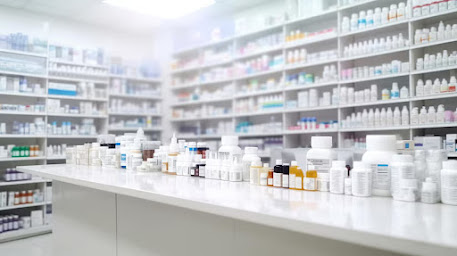How Can I Determine if a Compounding Pharmacy is Legitimate?
With the rise of personalized medicine, compounding pharmacies have become increasingly popular. They provide tailored medications that meet the specific needs of patients, offering solutions when standard pharmaceuticals fall short. However, not all compounding pharmacies are created equal, and it’s crucial to ensure that the one you choose is legitimate. Here are several steps and considerations to help you verify the legitimacy of a compounding pharmacy.
1. Verify Licensing and Accreditation
State Licensing: Each state in the U.S. has its own Board of Pharmacy that regulates the licensing of pharmacies. The first step in verifying a compounding pharmacy’s legitimacy is to ensure it is licensed by the state in which it operates. You can typically check a pharmacy’s license status on your state's Board of Pharmacy website.
Accreditation: Look for accreditation from recognized organizations such as the Pharmacy Compounding Accreditation Board (PCAB), which is part of the Accreditation Commission for Health Care (ACHC). Accreditation indicates that the pharmacy meets high standards of quality and safety in its compounding practices at Hilldrugs Pharmacy & Compounding.
2. Check for Professional Affiliations
Legitimate compounding pharmacies often hold memberships in professional organizations such as the International Academy of Compounding Pharmacists (IACP) or the National Community Pharmacists Association (NCPA). These memberships can be a good indicator that the pharmacy is committed to maintaining professional standards and staying informed about industry best practices.
3. Research the Pharmacy’s Reputation
Online Reviews and Testimonials: Look for reviews on independent websites, such as Google Reviews, Yelp, or health-specific forums. Be cautious of reviews on the pharmacy’s own website, as these can be selectively curated.
Better Business Bureau (BBB): Check the pharmacy’s rating and any complaints filed against it on the Better Business Bureau website. A high rating and few unresolved complaints are positive indicators.
Word of Mouth: Ask your healthcare provider, friends, or family if they have any experience with the pharmacy. Personal recommendations can be very telling.
4. Evaluate the Pharmacy’s Communication and Customer Service
A legitimate compounding pharmacy should have knowledgeable and accessible staff. When you contact the pharmacy:
Ask Questions: Inquire about their compounding process, the source of their ingredients, and their quality control measures. Staff should be able to provide clear and detailed answers.
Transparency: The pharmacy should be transparent about its pricing, policies, and procedures. If they are evasive or unwilling to provide information, consider it a red flag.
Customer Service: Good customer service is a hallmark of a reputable pharmacy. Note how promptly and professionally they respond to your inquiries.
5. Assess the Quality of Compounded Medications
Ingredients: Ensure that the pharmacy uses high-quality, pharmaceutical-grade ingredients from reputable suppliers. You can ask about the source of their ingredients and if they are FDA-approved.
Testing and Quality Assurance: A legitimate compounding pharmacy should have robust quality assurance practices, including regular testing of their compounded medications for potency, purity, and sterility. Ask if they conduct third-party testing and request certificates of analysis if necessary.
Preparation Standards: Inquire about the pharmacy’s compounding environment. It should adhere to USP <795> guidelines for non-sterile compounding and USP <797> guidelines for sterile compounding. These guidelines ensure that the medications are prepared in a clean and controlled environment.
6. Review the Pharmacy’s Compliance with Regulations
FDA Guidelines: While the FDA does not regulate compounded medications in the same way it does manufactured drugs, it does oversee certain aspects of compounding. The pharmacy should comply with the FDA’s guidelines and not engage in prohibited practices, such as compounding large quantities of medications for resale.
Inspections: Check if the pharmacy has undergone recent inspections by state or federal agencies. Inspection reports can provide insight into the pharmacy’s compliance with regulatory standards.
7. Consult Your Healthcare Provider
Your healthcare provider can be a valuable resource in verifying the legitimacy of a compounding pharmacy. They often have experience working with various pharmacies and can recommend reputable ones. Additionally, they can help you evaluate whether the compounded medication you need is appropriate and necessary for your condition.
Conclusion
Choosing a legitimate compounding pharmacy is essential to ensure the safety and efficacy of your medications. By verifying licensing and accreditation, researching the pharmacy’s reputation, evaluating communication and customer service, assessing the quality of compounded medications, reviewing regulatory compliance, and consulting your healthcare provider, you can make an informed decision. A legitimate compounding pharmacy will always prioritize patient safety, quality of care, and transparency in its operations.




Comments
Post a Comment